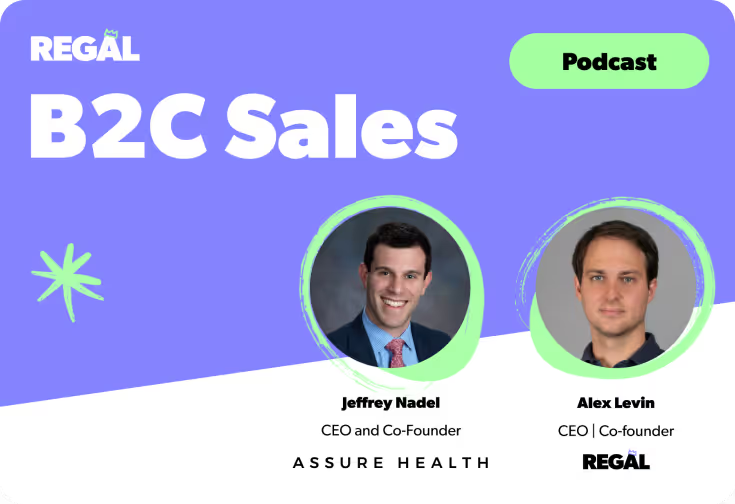
September 2023 Releases
Effective April 11, 2025, the FCC implemented new TCPA guidance that significantly tightens opt-out handling requirements.
For contact centers, this means old habits—like relying solely on keyword detection or treating channels independently—are no longer defensible.
Even well-meaning teams are now vulnerable to violations if their systems can't interpret intent, apply suppressions cross-channel, and act in real time.
Many Regal customers are adopting AI-driven workflows to help drive their compliance strategy.
In this post, we walk through what's changed under the new TCPA rules, the specific operational risks of non-compliance, and how Regal’s AI Decision Node is helping enterprises stay compliant.
You must now interpret consumer intent, not just scan for specific opt-out keywords like “STOP.” That means vague replies must all be treated as valid revocations of consent.
That includes phrases like:

Keyword-only filters are no longer compliant.
Opt-out signals now apply across all channels (SMS, voice, and email) even if the customer opts out through just one.
Example:
If a customer replies “Please don’t contact me,” via SMS, you are required to suppress future outreach via phone and email too. It is no longer acceptable to continue communication on other channels just because the customer didn’t explicitly opt out on each one.
%20(1).webp)
While formal enforcement of this cross-channel rule has been delayed until April 11, 2026, the expectation is clear, so it’s best to start updating your systems now. If you don’t:
Consumers can revoke consent through any reasonable means, including:
If a customer expresses the desire to stop communication, regardless of the format, it must be honored.
Businesses are now required to honor opt-out requests within 10 business days, down from the previous 30-day window. Manual or delayed suppression processes will no longer be viable.
You may send a one-time, non-promotional message within five minutes of receiving an opt-out request, for the sole purpose of confirming the scope of revocation.
Using an AI Agent to reach out immediately to opt-out requests is a great way to gain clarification on vague phrasing (and preserve customer relationships that could otherwise be incorrectly cut short):
%20(1).webp)
If the consumer does not respond, the request must be treated as revoking consent for all robocalls and texts from that sender.
Failure to adapt to these new requirements exposes contact centers to serious consequences. Even teams with good intentions can fall short if their systems aren’t equipped to interpret natural language or suppress contacts across systems in real time.
Violations can result in $500 to $1,500 per instance—with no requirement to prove actual harm. It’s not uncommon for a single contact to result in multiple violations because of outdated workflows.
Under TCPA, class-action lawsuits are common. Just a handful of opt-out failures can lead to broader liability if your processes don’t meet the updated standards.
In industries like healthcare, insurance, and finance, trust matters. If your brand continues messaging customers after they’ve asked to stop—even unintentionally—you risk long-term reputation damage and brand trust erosion.
You can no longer rely on rigid keyword logic or manual processes.
That gap is where violations happen. Staying compliant now requires infrastructure that understands language, acts in real time, and communicates suppression decisions across channels.
Further introducing AI to the opt-out process makes it much more fluid to remain compliant.
We’re seeing enterprises across healthcare, insurance, education, home services, lending, and more adapting to these TCPA updates by moving towards automated workflows that understand context and trigger suppressions instantly.
Regal customers are leveraging our AI Decision Node to:
%20(1).webp)
Instead of waiting for human review or matching only on predefined phrases, the AI Node allows businesses to define dynamic, language-aware suppression logic.
So instead, when a customer says, “Please don’t call me,” Regal automatically suppresses future communication via SMS, voice, and email—without waiting for a disposition code or human review.
%20(1).webp)
It should be noted: This functionality is natively built into the Regal Journey Builder, and can be configured without code. See more about that here.
What exactly can you configure with Regal’s AI Decision Node?
A few examples include:
If you’re looking for more guidance on these regulations or how you can use AI to adapt to them today, connect with a Regal AI expert.
DISCLAIMER: This article is for informational purposes only and does not constitute legal advice. Please consult legal counsel for guidance specific to your organization.
Ready to see Regal in action?
Book a personalized demo.









